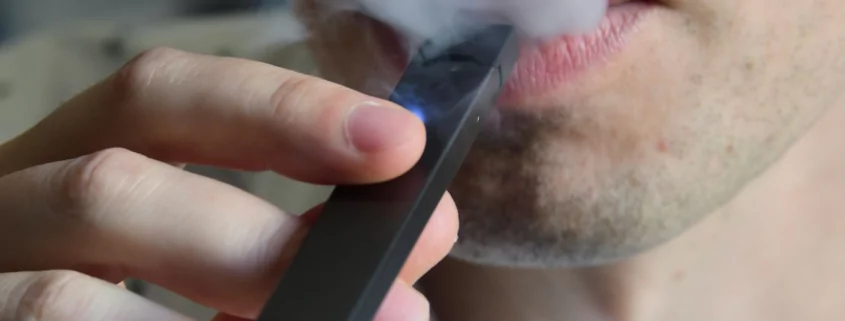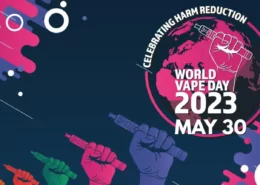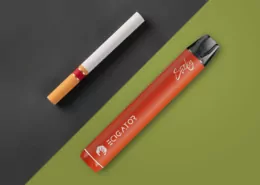An In-depth Analysis of Vape Restrictions in Eastern Europe
In recent times, the world has seen an influx in vaping restrictions, especially in Eastern Europe. Countries such as Serbia, Hungary, Romania, and Latvia have taken strict measures, each with their unique approach, to regulate the use of vape products. This article aims to provide an in-depth analysis of the current situation, painting a comprehensive picture of the unfolding vape restrictions in these countries.
Serbia’s stance on vape sales, especially to minors, has seen a significant shift. Recent amendments to the Law on Consumer Protection have resulted in an outright ban on vape sales to minors. This step, according to the ministry overseeing Serbia’s tobacco laws, is a solution to the rising popularity of vape products among non-smoking youth, which poses a grave public health concern.
Contrary to Serbia’s specific stance, Hungary opts for a more generalized approach. The country’s ruling party, Fidesz, reaffirms its commitment to treating vaping like smoking. Despite significant scientific evidence about the potential benefits of vapes, State Secretary of the Ministry of Interior, Benec Rétvári, maintains that vaping will continue to be regulated as smoking.
The Hungarian government’s stance has been widely criticized. Michael Landl, the Director of the World Vapers’ Alliance (WVA), warns that such an approach will only contribute to the loss of lives. He emphasizes that vaping is 95% less harmful than smoking and is a more effective method to quit smoking than traditional therapies.
Neighbouring Romania is also seeing shifts in its stance towards vaping. A recent draft law submitted to Parliament proposes extending existing smoking restrictions to vaping products. If passed, this law would ban the voluntary consumption of smoke, vapors, or aerosols in enclosed public spaces, public transport, indoor workplaces, and children’s playgrounds.
In Latvia, a proposed bill aims to ban tobacco and nicotine alternative products, including vapes, to anyone under 20. Moreover, it plans to ban vape flavors altogether. The bill has gained substantial support with 79 parliamentary members voting in favor during the second reading.
Misinformation Informing Policy
The fearmongering campaign against vaping products has resulted in misguided regulations. While sensible regulations like Latvia’s age limit are encouraged, sweeping bans, as proposed in Serbia, are discouraged. Research indicates that vaping products are not only safer than cigarettes but also the most effective smoking cessation tools available.
The claim that vaping leads to smoking, a theory constantly informing policy, has been disproved repeatedly. A recent study in England, published by Addiction, reveals that increased vaping rates among young adults did not correlate with increased smoking rates. In fact, it saw the lowest smoking rates ever recorded.
As we navigate the maze of vape restrictions spreading across Eastern Europe, it’s essential to balance public health concerns with individual freedoms. It’s also crucial to keep abreast of scientific research, debunk myths, and formulate informed policies. The journey is complex, but with the right approach, a healthier future can be achieved.
Frequently Asked Questions
What are the vape restrictions in Serbia?
Serbia has recently amended its Law on Consumer Protection to ban vape sales to minors.
How does Hungary regulate vaping?
Hungary treats vaping like smoking and regulates it in the same manner.
What is the stance of the World Vapers’ Alliance on Hungary’s vaping policy?
The World Vapers’ Alliance criticizes Hungary’s policy, emphasizing that it could lead to the loss of lives as vaping is a more effective and less harmful method to quit smoking.
What changes are proposed in Romania’s vaping laws?
Romania’s draft law proposes extending existing smoking restrictions to include vaping products, banning their use in enclosed public spaces, public transport, indoor workplaces, and children’s playgrounds.
What are Latvia’s proposed changes to vaping regulations?
Latvia proposes to ban tobacco and nicotine alternative products, including vapes, to anyone under 20, and to ban vape flavors altogether.
- Malaysian Sarawak Considers Banning Vape Product Sales - July 18, 2025
- FDA Authorized E-Cigarette List: What’s Really Included?(Updated July 2025) - July 18, 2025
- FDA Authorizes Juul’s Tobacco and Menthol E-Cigarettes for US Market - July 18, 2025








